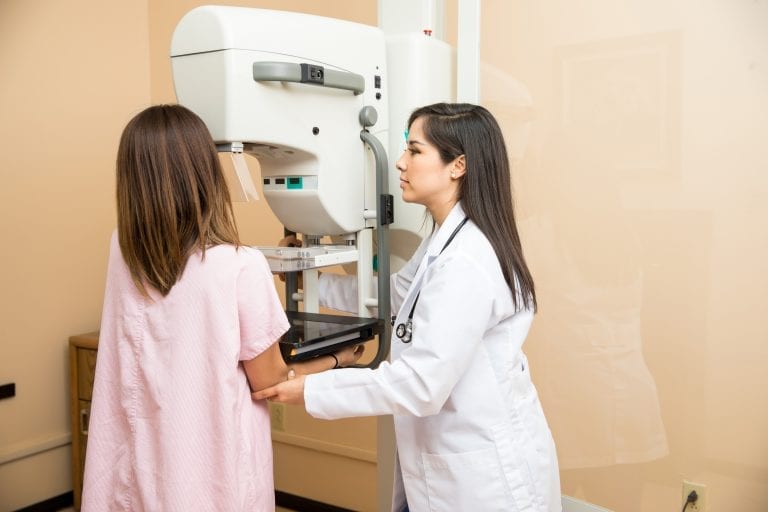Figuring out which women’s health screenings and tests you may need and when can be confusing—here’s your guide to sorting it out.
Until recently, women routinely visited their gynecologist once a year for a full exam plus an annual Pap smear to screen for cervical cancer. But things have changed as we’ve learned that more frequent screening isn’t always better screening. In case you’re confused, here are the latest recommendations.
Cervical Cancer
Pap smears screen for cervical cancer, including pre-cancer. During a Pap, your healthcare provider takes a small collection of cells from your cervix and sends it to a lab for testing. You should begin screening for cervical cancer at age 21, even if you’re not yet sexually active.
As long as your first Pap is normal, you can space screening out to every 3 years until age 30, at which time your care provider is also likely to add HPV (human papillomavirus) screening to your exam. If both tests are negative, your risk of cervical cancer and even cervical pre-cancer is very, very low, and it’s safe to continue extending the screening interval. Some healthcare providers will test again in 5 years, and others are more comfortable with 3 years—talk to your provider and see what they recommend for you.
If your Pap doesn’t yield normal results, you may just need another Pap in a year, not 3 years. If your next screen is also abnormal, or if you’re age 24 or older, your healthcare provider will likely advise a biopsy (colposcopy).
Annual Well-Woman Exam
Your annual exam is so much more than a Pap smear! It covers your general health, birth control, sexual activity, menstrual periods and more. You’ll have your breasts, ovaries and uterus examined, too. So please keep this annual appointment—it’s an important part of your own preventive health care.
STI Screening
If you’re 25 years old or younger, your healthcare provider will test once a year for chlamydia and gonorrhea infections, as recommended by the CDC. You can request testing at any time if you’re concerned about these sexually transmitted infections. The CDC also recommends that you get tested for HIV at least once after age 13.
Mammography
A mammogram is an x-ray of your breast to screen for cancer. For most women, mammography begins around age 40, as recommended by the American College of Obstetricians and Gynecologists; other groups say screening could be delayed up to your 50th birthday. Talk to your healthcare provider about any incidences of breast cancer in your immediate and extended family—your care provider may modify these recommendations based on your personal risk.






Comments are closed.